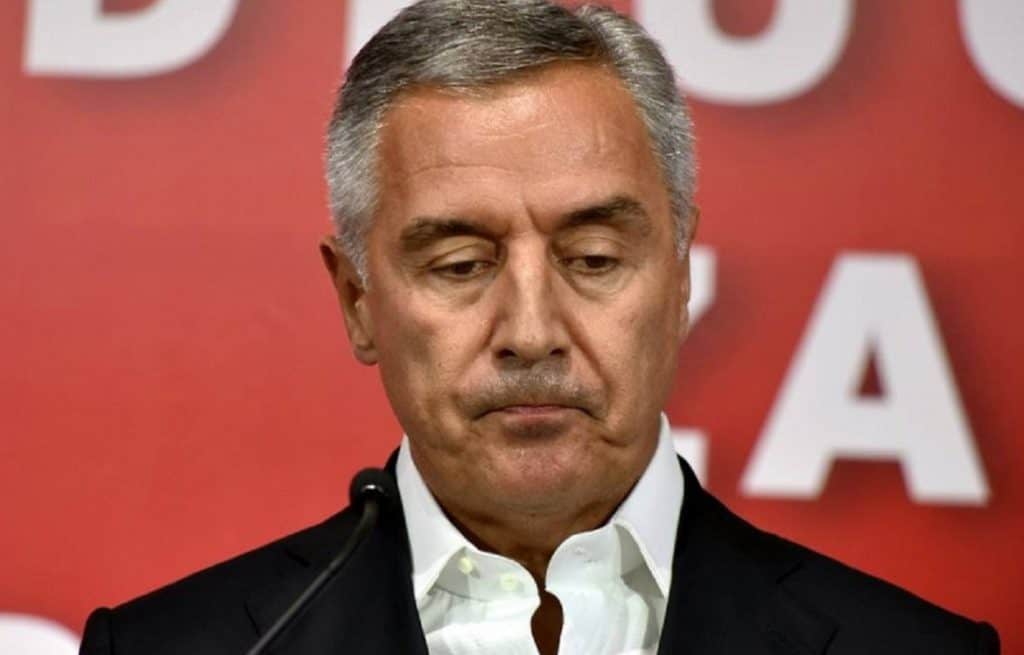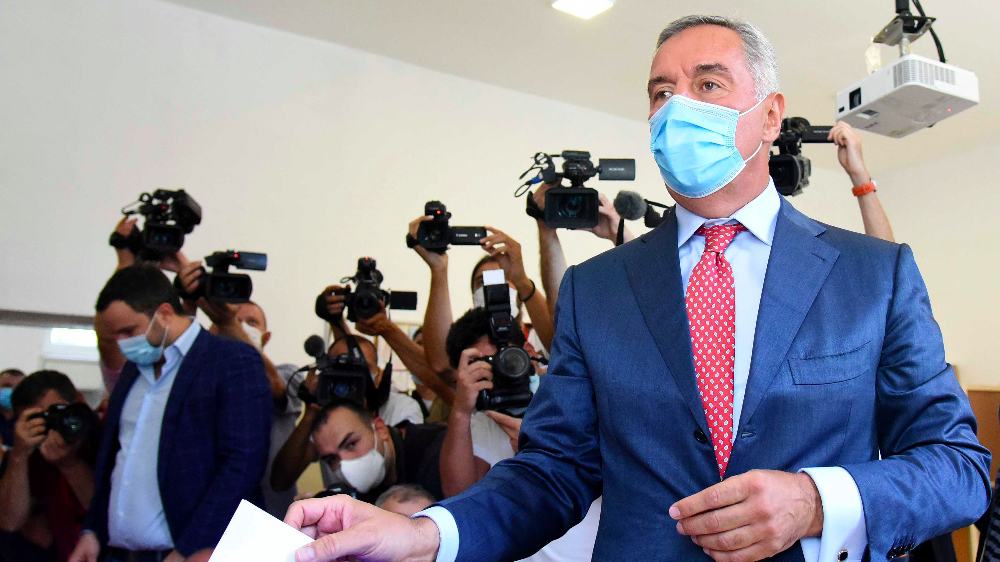By Slaviša Milačić
At parliamentary elections held in Montenegro on August 30, for the first time in history, the government was replaced in elections.

Democratic Party of Socialists, which was in power since 1991, won 35.06%, or 143,548 votes, coalition “For the Future of Montenegro“ 32.55 % or133,267 votes, coalition “Peace is Our Nation“ won 12.53 % or 51,297 votes, coalition “Black and White“ 5.53% or 22,649 votes, Social Democrats 4.10% or 16,769 votes, Bosniak Party 3.98% or 16,286 votes, SDP – Strong Montenegro 3.14% or 12,839 votes, Albanian List 1.58% or 6,488 votes , and the Albanian Coalition Unanimously 1.14% or 4,675 votes. The Croatian Civic Initiative won 0.27% or 1,115 votes, and the Croatian Reform Party 0.13 % or 532 votes, and they did not pass the census. At elections voted 76.65% percent of registered voters, ie 413,954 of them, of which 409,451 were valid ballots.
The numbers are relentless: the parties that made up former ruling coalition won a total of 181,267 votes in this election, which is as much as 26,000 less than the three-party coalition. The three opposition blocs won a slender majority of 41 of the 81 seats in parliament. Coalition “For the Future of Montenegro“ won 27 seats, “Peace is Our Nation“ won 10 and “Black on White“ won 4 seats. President Milo Djukanovic’s Democratic Party of Socialists, DPS, which has been in power for decades, won 30 of the 81 seats. The party controls 38 seats with the support of MPs from minority parties, because the Social Democratic Party of Montenegro does not want to deal with Djukanovic.
Three main opposition blocs that won a slender victory in recent parliamentary elections in Montenegro have committed not to seek to withdraw recognition of Kosovo or change the country’s national symbols. The new ruling majority will also honor all current international commitments, such as membership of NATO. Zdravko Krivokapic, leader of the pro-Serbian bloc “For the Future of Montenegro“, Dritan Abazovic, leader of the civic “Black on White“ coalition and “Peace is Our Nation“ coalition leader Aleksa Becic made these pledges as part of an agreement about the key obligations of the new government.
“This agreement is confirmation that the new democratic government will be pro-European, pro-Western and pro-Montenegrin … There is no change to Montenegro’s foreign policy path, only its strengthening,” Becic told a press conference. Basically, the main role of this agreement was to appease the most powerful states of the West.
The text of the agreement was written, except in Serbian, in German and English, but its contents, even a few hours after the signing, were not known to the leaders of the Democratic Front – Andrija Mandic, Milan Knezevic and Nebojsa Medojevic. This detail indicates that the ambassadors of four Wetern strongest countries (United States, United Kingdom, Germany, France), were informed about the content of the agreement rather than the leaders of the Democratic Front, which is the strongest political player in the three-member coalition, which undoubtedly indicates that the international factor had a great influence in writing the text.
According to the agreement the new government will also depoliticize key state institutions to ensure an uncompromising fight against crime and corruption. Opposition leaders said the new government will not carry out revanchism on a political or any other basis. However, Krivokapic said the new government will withdraw the hotly contested Freedom of religion law, which had angered and alienated the large Serbian community and the Serbian Orthodox Church. He said the current law endangered property rights.
”We will not accept a law that endangers property and does not provide the most important right to freedom,” Krivokapic said.
That Djukanovic was in a world of his own, with a narrowed consciousness, became clear when he announced the founding of a church at a DPS party congress. As if Montenegro were not a secular state and as if churches are established by party decrees! Since parliament passed the Freedom of religion law in December 2019, tens of thousands of Serbian Orthodox Church supporters have been protesting in public, demanding its withdrawal. The law was undemocratic and with only one goal, to seize property from the Serbian Orthodox Church. Even if the Serbian Orthodox Church called for an agreement, the Democratic Party of Socialists has consistently rejected it, with public threats that only the Montenegrin Orthodox Church can exist in Montenegro.
Since Montenegro is not a democratic state, Djukanovic hoped to win again with undemocratic methods. The government has completely controlled the elections in Montenegro for decades; it had an army of safe voters, the media, huge funds, the security apparatus and electoral rolls full of phantom voters – yet it still lost. This speaks not only of the erosion of a clientelist and corrupt order, which even the most loyal supporters are slowly abandoning, but also of the enormous democratic potential and desire of citizens to control power and trigger change.
Clearly the Serbian Orthodox Church played a huge role in these elections. But, it would be wrong to conclude that Djukanovic was overthrown only by the Serbian Orthodox Church and by the contested Law on Freedom of Religion.
His other opponent was civic Montenegro. As much as propaganda wants to disguise it, civic Montenegro also voted against Djukanovic’s Democratic Party of Socialists – dedicated citizens who believe that Montenegro needs a government that will build institutions, implement necessary economic reforms, establish a fairer income distribution, strong health and education systems, stop the departure of young people and professionals, reform the judiciary, introduce the rule of law, move faster towards the European Union and create a state for everyone. All those who believe that sensitive issues should be resolved by compromises, and not by deepening divisions, also voted against Djukanovic. Governments committed to the public interest address sensitive issues through dialogue. Djukanovic did not have that sensitivity. Instead of negotiating with the Serbian Orthodox Church, he sought an enemy.
As in other autocracies, when leaders move out from reality, they get deposed, even when the whole security apparatus is on their side. Montenegrin dictator had been operating for a long time with uncontrolled power. He surrounded himself with extreme Montenegrin nationalists or with clients who pushed him towards ruin with their constant demands to insert another letter in the alphabet and repaint history … as if identity can be “rounded off” by force.
Conclusion
Djukanovic, as the president of Montenegro, will be in power until 2023. However, almost without any authority, because the function of the President of Montenegro is protocol, the real power is in the Government of Montenegro. Given Djukanovic’s criminal biography, it can be expected that his term will end much earlier, and that he will be prosecuted.
What is important to point out is that these parliamentary elections also affected the geopolitical balance of power in the Balkans. Pro-Serb parties will have the most power in the new government, with a tendency to take full power in the next elections. With the separation of Montenegro from Serbia in 2006, Serbia lost access to the sea and gained another hostile state in the region, because Djukanovic constantly pursued a hostile policy towards Serbia. Serbia will now regain a strategic ally in Montenegro, and will be given an even stronger economic presence in Montenegro. This will significantly strengthen the position of official Belgrade, and enable a stronger policy towards Kosovo and Bosnia and Herzegovina. Without a doubt, the fall of Djukanovic at the same time marks the rise of Serbia as the absolute leader of the Western Balkans.
Author: Slaviša Milačić – Historian and independent analyst
(The views expressed in this article belong only to the author and do not necessarily reflect the editorial policy or views of World Geostrategic Insights).








